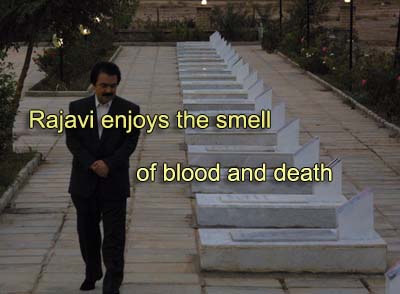Rajavi and his propaganda machine are engaged in a never-ceasing, fervent struggle of supporting Camp Ashraf and encouraging the insiders to resist against the pushes to evacuate the organization’s strategic bastion.
While the organization consents to leave Iraq for a third country where it hopes to be the United  States or a country member of the EU, particularly after being removed from its list terrorist groups, it warns against the outbreak of a human tragedy in the camp. Nevertheless, the reports indicate that the Iraqi Government is decisive to close the camp and expel the insiders, regardless of MKO’s attempts to convince its advocates to support its stay in Iraq. The government’s determination fully comprehended, Rajavi sees no other option but to weigh anchor willingly or unwillingly.
States or a country member of the EU, particularly after being removed from its list terrorist groups, it warns against the outbreak of a human tragedy in the camp. Nevertheless, the reports indicate that the Iraqi Government is decisive to close the camp and expel the insiders, regardless of MKO’s attempts to convince its advocates to support its stay in Iraq. The government’s determination fully comprehended, Rajavi sees no other option but to weigh anchor willingly or unwillingly.
The reality of the decision curing him of many fantasies and forcing him to act down-to-earth, Rajavi has taken a new turn to make a profitable deal before leaving the camp; to put a price on the camp.
His 200 million dollars demand for Ashraf is believed to be leading the Iraqi Government to face a serious law-suit challenge vis-a-vis the organization. Although drafted to prolong the group’s stay in Iraq, no doubt it is a problem that will be dealt with and has no effect on the arrived decision to expel the terrorists from Iraq. MKO knows well that none of its claimed, advertized millions of supporters will avail to annul what has already been decided and the victories it periodically trumpets to have achieved are nothing but an abuse of the humanitarian moves taken by the Iraqi Government to demonstrate its respect for human rights and global conventions.
Of other parameters that to a great extent disinclined Ashraf residents from reasoning to incline to Rajavi’s wrangling messages that has mislead their minds is occasional, social commotions inside Iran.
Receiving biased information about what is really going on in Iran, the members inside Ashraf are under the impact of misinformation and the illusion that they are the final winners of the riots that Rajavi refers to as revolution. Deceptive as his messages are not only them but any simple-mined in abroad may easily establish conformity between the demands of some protestors living in Iran and those of Rajavi’s group that has long lost its popularity; chanting demands of democracy, the Iranian protestors prefer to be ruled by any regime but that of led by the Rajavis.
The concluding words of Rajavi in his message of November 4, after putting a price on Ashraf, are boasting about the potentiality of Ashraf residents to overthrow the regime side by side of the Iranian people.
How can he bargain so precious a whole potentiality that can so easily play a decisive role to change a regime! But the members residing in Ashraf have to face the reality that Camp Ashraf, with all its potentialities and the made sacrifices, is on sale and the price is set by the very same person who encourages the members to resist. An estate on sale will be sold whether or not the residents like it.
The sole solution for the insiders before the sale debases them is to preserve the last vestiges of their honor and come to know their own real price. The past events demonstrate proven evidences that Rajavi bargains anything to satiate his voracious appetite for the power and egocentric ambitions. Rajavi’s past is full of such bargains whose victims are either suffering from incurable, sore wounds or regretting for the past mistakes of losing dignity in the company of a charlatan.

